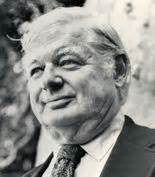A Quote by Fritjof Capra
At this point in our global ecological crisis, the survival of humanity will require a fundamental shift in our attitude toward nature: from finding out how we can dominate and manipulate nature to how we can learn from her. In this brilliant and hopeful book, Jay Harman shows us how far the new field of Biomimicry has already progressed toward this goal. The Shark's Paintbrush makes for fascinating and joyful reading - much needed in these dark times.
Quote Topics
Attitude
Biomimicry
Book
Brilliant
Crisis
Dark
Dark Times
Dominate
Ecological
Ecological Crisis
Far
Fascinating
Field
Finding
Fundamental
Global
Goal
Her
Hopeful
How
How Far
Humanity
Jay
Joyful
Learn
Makes
Manipulate
Much
Nature
Needed
New
Our
Out
Paintbrush
Point
Reading
Require
Shark
Shift
Shows
Survival
Times
Toward
Us
Will
Related Quotes
Biomimicry is innovation inspired by nature. In a society accustomed to dominating or 'improving' nature, this respectful imitation is a radically new approach, a revolution really. Unlike the Industrial Revolution, the Biomimicry Revolution introduces an era based not on what we can extract from nature, but on what we can learn from her.
Jay Harman is the quintessential biomimic, a principled inventor who sees solutions everywhere he looks in the natural world. And he looks deeply, with the soul of a student. He moves with grace from a world of waving sea kelp to the world of sustainable design, bringing nature's wisdom into the board rooms of global companies, to the design tables of the engineers and designers who make our world. This is more than a business book, more than a memoir, more than a new way to solve global challenges. It's a book about a new way to think.
There's so much humanity in a love of trees, so much nostalgia for our first sense of wonder, so much power in just feeling our own insignificance when we are surrounded by nature...yes, that's it: just thinking about trees and their indifferent majesty and our love for them teaches us how ridiculous we are - vile parasites squirming on the surface of the earth - and at the same time how deserving of life we can be, when we can honor this beauty that owes us nothing.
The same plasticity that allows us to form a reading circuit to begin with, and short-circuit the development of deep reading if we allow it, also allows us to learn how to duplicate deep reading in a new environment. We cannot go backwards. As children move more toward an immersion in digital media, we have to figure out ways to read deeply there.
Satiety depends not at all on how much we eat, but on how we eat. It's the same with happiness, the very same...happiness doesn't depend on how many external blessings we have snatched from life. It depends only on our attitude toward them. There's a saying about it in the Taoist ethic: 'Whoever is capable of contentment will always be satisfied.
The conflict will always beyond ur strength.The enemy always pushes us beyond our personal, inbred, preset limits concerning how far we'll go for God:"Here's how far I'm going to love,this is how many times I'll turn the other cheek."The test kills the limits of our humanity,til we're like Christ in everything We're left with a choice:Become Christlike or gradually shrivel into superficial hypocrites: angry people who have stopped walking with God, who blame others for our bitterness.
Our Children no longer learn how to read the great book of Nature from their own direct experience, or how to interact creatively with the seasonal transformations of the planet. They seldom learn where their water come from or where it goes. We no longer coordinate our human celebration with the great liturgy of the heavens.
There is no need to invent an ego that is separate from the divine if our basic human nature is trusted. If we trust ourselves, we know how to avoid interfering with nature and how to live in harmony. When we know God as an unseen, loving, and accepting power at the heart of everything, allowing us to make our own choices, then God is a trusted part of our nature.
Both our present science and our present technology are so tinctured with orthodox Christian arrogance toward nature that no solution for our ecologic crisis can be expected from them alone. Since the roots of our trouble are so largely religious, the remedy must also be essentially religious, whether we call it that or not. We must rethink and refeel our nature and destiny.



































